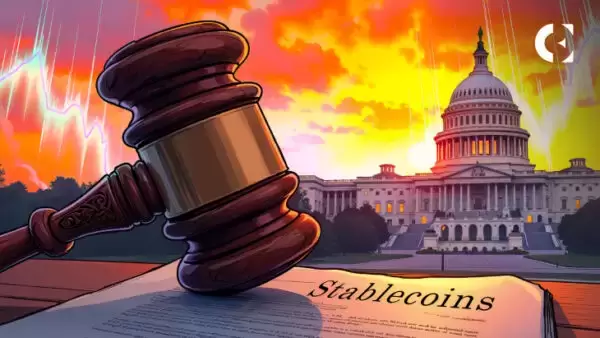 |
|
 |
|
 |
|
 |
|
 |
|
 |
|
 |
|
 |
|
 |
|
 |
|
 |
|
 |
|
 |
|
 |
|
 |
|
Cryptocurrency News Articles
Iceland's Energy Conundrum: Food Security Takes Precedence over Bitcoin Mining
Mar 25, 2024 at 09:39 pm
Iceland's Prime Minister Katrín Jakobsdóttir is advocating for a shift in energy utilization, prioritizing farming over Bitcoin mining operations. As Iceland imports a significant portion of its food supply despite its abundant renewable energy resources, the government aims to enhance food sustainability and ensure equitable power distribution. Jakobsdóttir believes the country's energy supply can be converted into facilities for controlled-temperature crop cultivation, including corn production, to reduce food dependency. However, this plan faces challenges due to competition for energy allocation with expanding Bitcoin mining activities.

Iceland's Energy Dilemma: Prioritizing Food Security over Bitcoin Mining
Amidst Iceland's bountiful renewable energy resources and thriving Bitcoin mining industry, a critical debate has emerged that pits economic sustainability against national food security. Prime Minister Katrín Jakobsdóttir, who has been at the helm of the nation since 2017, has expressed her firm belief that Iceland's energy should be primarily harnessed for agricultural development rather than cryptocurrency mining.
Iceland's Energy Landscape
Iceland stands as a global leader in energy production, ranking among the top 10 globally. Its abundant hydroelectricity and geothermal resources provide a clean, renewable, and cost-effective source of power that has made it a hub for energy-intensive industries, including Bitcoin mining. According to Luxor's 2021 estimates, Iceland produces an astonishing 50 MWh of electricity per capita, with approximately 80% derived from hydroelectricity and 20% from geothermal sources.
Bitcoin Mining's Energy Consumption
The surge in Bitcoin mining operations in Iceland has raised concerns among government officials about the potential strain on the country's energy supply. Estimates indicate that approximately 120 MWh of power is currently being consumed by Bitcoin mining facilities, a figure that is expected to rise as miners upgrade their equipment ahead of the upcoming Bitcoin halving.
This energy consumption is particularly concerning given Iceland's limited agricultural potential due to its climate and terrain. Prime Minister Jakobsdóttir believes that the country's energy resources should be prioritized for food production, especially in light of the looming threat of trade disruptions caused by global conflicts.
The Bitcoin Halving's Impact
The upcoming Bitcoin halving, scheduled for April 2023, will further exacerbate the energy dilemma facing Iceland. The halving event will reduce the block reward for Bitcoin miners from 6.25 BTC to 3.125 BTC, leading to a decline in the supply of new Bitcoins. This will increase the pressure on miners to increase their hashrate, which in turn will require more energy consumption.
Balancing Economic Growth and Sustainability
The Icelandic government is faced with a difficult choice: whether to prioritize the lucrative Bitcoin mining industry or focus on ensuring food security for its population. While Bitcoin mining has brought significant economic benefits to the country, its energy-intensive nature poses a threat to Iceland's long-term sustainability goals.
Prime Minister Jakobsdóttir's stance reflects a growing concern among policymakers around the world about the environmental impact of cryptocurrency mining. If Iceland decides to limit or restrict Bitcoin mining activities, it will undoubtedly send shockwaves through the industry, forcing miners to seek alternative locations and potentially dampening the growth of the cryptocurrency ecosystem.
Conclusion
The debate over Iceland's energy utilization highlights the complex trade-offs between economic growth and environmental sustainability. As the world grapples with the challenges of climate change and food security, governments are increasingly faced with the need to balance their energy consumption with the preservation of natural resources and the well-being of their citizens. Iceland's dilemma serves as a microcosm of this global challenge, and its decision will undoubtedly have far-reaching implications for the future of both the cryptocurrency industry and the country's own economic trajectory.
Disclaimer:info@kdj.com
The information provided is not trading advice. kdj.com does not assume any responsibility for any investments made based on the information provided in this article. Cryptocurrencies are highly volatile and it is highly recommended that you invest with caution after thorough research!
If you believe that the content used on this website infringes your copyright, please contact us immediately (info@kdj.com) and we will delete it promptly.
-

- U.S. House Financial Services Committee Advances “STABLE Act” Aimed at Creating a Dedicated Framework for Stablecoin Regulation
- Apr 03, 2025 at 10:00 am
- The STABLE Act, designed to create a dedicated federal framework specifically for stablecoin regulation, has reportedly gained significant bipartisan support.
-

-

- Shocking footage has emerged of a woman cutting down a poster of independent Fowler MP Dai Le
- Apr 03, 2025 at 09:55 am
- Shocking footage has emerged of a woman cutting down a poster of independent Fowler MP Dai Le, saying she's doing so because the Vietnamese-Australian is a “Communist” and a “Muslim”.
-

-

-

-

-

- Elon Musk Resigns from Trump Administration, Sending Shockwaves Through Crypto and Political Spheres
- Apr 03, 2025 at 09:45 am
- In an unexpected and unprecedented development, tech magnate and billionaire entrepreneur Elon Musk has reportedly stepped down from his position in the Trump administration. This decision has sparked widespread reactions across financial markets, cryptocurrency platforms, and political circles worldwide.
-




























































